- Home
- Helen Dunmore
Betrayal Page 10
Betrayal Read online
Page 10
Anna believes that it’s not a question of remembering or of forgetting. The past is alive. It claims what is its own.
7
Andrei picks up the telephone. ‘Brodskaya here,’ says the voice. ‘I have the results of the Volkov biopsy.’ He is silent, waiting. ‘Can you come over?’
‘Of course.’
Galvanized, he’s up and out of the door, swinging down the corridor as if eager for the meeting. Brodskaya is at her desk. The path lab report file lies in front of her, open. As soon as he closes the door behind him she says quietly, ‘It’s as we thought. There is osteoid throughout the lesion in the proximal tibia and the lesion has spread beyond the bone into soft tissue. Amputation of the limb above the knee is the only course of action. X-rays of the lungs show no metastasis at this point.’
‘I see.’
She pushes the file towards him. Rapidly he scans it, aware that the detail will mean much more to her than it does to him.
‘There’s no chance of saving the limb?’
She shakes her head.
‘I see.’
‘So will my leg be better in time for pre-season training?’
‘I hope so. That’s what we all want.’
‘Thank you, Riva Grigorievna. If you don’t mind, I’d like to take the biopsy report with me when I talk to the child’s parents.’
‘Not an easy task,’ says Brodskaya.
‘It never is.’ Let’s cling to the fiction that this is a child like any other: a straightforward case of suffering, grief, and perhaps recovery.
‘The sooner the operation is done,’ says Brodskaya, ‘the better for him. This is an aggressive tumour, as you know. I’d prefer to prepare the boy and operate tomorrow.’
‘Yes, I understand. I’ll call you as soon as I’ve talked to the parents.’
‘This is not correct!’ exclaims Brodskaya suddenly. ‘I should convey this information directly – as the surgeon who carried out the biopsy –’
He looks at her, wondering if she really means it. Brodskaya doesn’t strike him as the type to display professional pique. And who would make a stand on protocol in this situation, when the prize is telling a man like Volkov that his son’s leg must be amputated?
‘I understand that,’ says Andrei.
‘I’m not blaming you personally, please don’t think that. I know you’re not responsible. But it makes me uneasy. We have developed our procedures for a reason. They protect us, just as they protect the patient.’
In such a case, nothing will protect us, thinks Andrei. With some colleagues he might even risk saying it, but he scarcely knows Brodskaya.
‘Have you discussed it with Admin?’ he asks instead.
‘Of course. As soon as I raised the subject it was made clear to me that Volkov had already spoken to them. Every facility is to be made available. As you know, they accept your involvement in the case, despite its irregularity.’
‘I see.’
‘Andrei Mikhailovich, if you take my advice, you will reduce your involvement to the minimum. This is a difficult case. Post-operative care and rehabilitation take time and are not always satisfactory. The risk of complications is high, let alone the risk of metastasis. It may be that micro-metastasis has already taken place. It’s impossible to tell. The outcome may be far from positive.’
‘I may not have that choice.’
‘No. But the patient will need expert nursing, physiotherapy and prosthesis. It’s important that all these people who are closely involved in the treatment are able to communicate directly with the family.’ She pauses. ‘The responsibility for this should not be yours alone. Please tell the family that if they wish to discuss the biopsy results with me, I am happy to do so.’
He looks back at her and nods, hoping that she knows how much he respects her. It’s not just professional pride that’s driving her; she has courage, too.
Brodskaya’s face softens, just a little.
*
The child is asleep. The nurse sitting by his bed looks up as Andrei pushes the door open, and puts her finger to her lips. Andrei nods.
‘Is the mother in the hospital?’
‘May I ask who you are?’ asks the nurse in a tone that would be startling if she worked in this hospital. Andrei doesn’t recognize her.
‘Dr Alekseyev. I have some responsibility for Gorya.’
‘Ah yes. Comrade Volkov has called Admin to say he will be in directly.’
They’ve made sure to find a Party member to nurse the boy today. Perhaps she’s a private nurse. This whole business is getting beyond him. He nods again, as if he understands, and starts to close the door.
‘No!’ comes the nurse’s urgent whisper. ‘You are to remain here. Comrade Volkov will be here directly.’
She’s right. A couple of minutes later the awkward silence between the nurse and Andrei is broken by approaching footsteps. Andrei moves quickly to the door and closes it behind him before the child can be disturbed. Volkov is dressed formally in a high-collared jacket, as if he’s just come from a meeting. His wife clops at his side in heels and a pale blue linen suit. Volkov’s sallow, high-cheekboned face shows no expression, but Polina Vasilievna looks at Andrei with pitiful entreaty.
‘So? What’s the news?’ Volkov asks.
‘We’ve just received the results of the biopsy. Please come with me.’
‘But we need to tell Gorya too, surely,’ breaks in the mother. ‘He’s very anxious, you must know that. His football means so much to him, and it’s the start of training –’
‘Gorya is sleeping at the moment,’ says Andrei.
‘Yes, but when he wakes up, he’ll –’ She knows something bad is coming. That’s why she keeps talking, to fend it off.
‘That’s enough,’ says Volkov quietly, taking her arm as if he were taking hold of a prisoner.
They follow Andrei down the corridor. He’s already told Admin that he needs a room, somewhere private, and they’ve cleared an office for him. It smells of polish, and someone has deposited a fresh vase of tulips on the desk. Extraordinary. There are several chairs, grouped together.
‘Please sit down. My colleague, Riva Grigorievna Brodskaya, carried out the biopsy, as you know. She’s offered to come and discuss the results with you, if you have any questions, but I thought it best that I spoke to you first, as we agreed.’
Volkov makes a gesture as if swatting something away.
‘The biopsy showed a tumour, as we expected. The results from pathology show that this tumour is an osteosarcoma. Let me explain what that means.’
The parents sit as if frozen. Volkov’s eyes are still. Andrei is suddenly sure that Volkov knows what the word means, but that his wife does not.
‘I am sorry to have to tell you that this is a form of cancer,’ he says.
The mother jerks in her chair. Her mouth opens and a flare of colour appears on her cheekbones. ‘No, it’s not so, that’s impossible, you are lying to us,’ she says in a high, fast monotone. ‘My Gorya’s not got cancer, it’s not possible, tell him, Seryozha, tell him it’s a mistake. They’ve got the results muddled up. It’s sabotage, that’s what it is –’
‘Be quiet,’ says Volkov.
‘I am sorry. This is very distressing for you, Polina Vasilievna,’ says Andrei.
‘It’s not me I’m thinking about, it’s Gorya. How’s he going to get better if you can’t even find out what’s wrong with him properly? There’s no cancer in my family, there never has been. It’s a mistake, I tell you –’
‘If you can’t sit quiet, you’ll have to go out,’ says her husband in the same flat voice. He reaches over, takes her left hand and folds it between his, then puts it in his lap. ‘Don’t talk. Listen.’ And then to Andrei, ‘So what are you going to do?’
Andrei pauses, glances at the mother, then back to Volkov. A wave of comprehension passes silently between them, and Volkov says, ‘Polya, I want you to go to the boy. He’ll be waking up and asking for you.’
/>
She stands up. Her cheeks are drained of colour now, and her eyes vacant with shock.
‘Take your valerian drops in a glass of water. You don’t want to upset the boy.’
She nods, fumbling in her handbag.
‘I’ll call a nurse for her,’ says Andrei, and reaches for the phone.
Once they’re alone, Volkov lights a cigarette. His hands are steady. ‘I don’t know much about cancer,’ he says. ‘So what are you going to do?’
‘There’s only one possible treatment, I’m afraid –’
‘Amputation,’ says Volkov quickly, as if he can’t bear to hear the word from anyone else’s mouth.
‘It’s the only way to stop the cancer spreading. Osteosarcoma is very aggressive.’
‘ “Aggressive”?’ The word pushes Volkov to his feet. He stands over Andrei, his face black with anger. ‘You want to cut my son’s leg off, and you tell me that’s not aggressive!’
Andrei holds his gaze. ‘Yes, it’s very bad,’ he says. ‘I know that.’
‘You don’t know. You can’t know. You haven’t got a son.’
So he wants me to know that he knows exactly who Kolya is. It sounds like a threat but it’s also the raw feeling of a father.
‘He has a chance of being picked for the A team this season.’
‘He told me.’
‘He can’t play for the A team, hopping around on one leg. He’ll be a cripple!’
‘He will learn to walk again.’
‘ “Walk”? You mean on crutches? You mean with a wooden leg?’
‘Gorya is going to need a lot of help after the operation. From everyone here, but most importantly from you and your wife. If you think he is a cripple, he will be a cripple.’
Volkov’s face contorts. He makes a fist of his left hand and thuds it with all his strength into the palm of his right. And again, and again. He is sweating. The animal smell of it fills the room.
‘Will you do it, then? Will you be the one that saws his leg off?’ Volkov hisses through his teeth.
‘I’m not an orthopaedic surgeon. As I said earlier, Dr Brodskaya will carry out the operation.’
‘Tell me this. What do they do with the leg after it’s been cut off? Throw it away?’
Andrei grasps his meaning. That precious leg; those little tootsies that you play games with when the boy is a baby. Learning to walk; learning to run. Learning to kick a ball. No, not like that, that’s how girls kick! Watch me. Learning to dribble, learning to pass. The baby lying on his back on a blanket, kicking at the sun. The pudgy, perfect foot that has not yet walked on the hard earth.
‘It would be better for him to die.’
Still Andrei says nothing. What answer can he give? His work is based on the premise that life is preferable to death, but when he thinks of everything that the boy’s got to go through before he resumes his life, even Andrei – who barely knows Gorya – has to quail.
‘Suffering, and more suffering, so that he can be a cripple.’
‘But at least it gives him a chance of survival.’
‘Survival – yes. But survival is not the same thing as life.’
Again there’s a long silence. Andrei’s next clinic is due to begin at three, and already it’s a quarter to. Usually he would spend the lunchtime before this clinic reviewing the files. His mind fills with the image of the crowded waiting room, the mothers (it’s almost always mothers) with the children sitting beside them, ‘nicely’. Many of them will be dressed in their best clothes. The girls’ hair tightly plaited, the boys’ ears red from vigorous washing. ‘You don’t want the doctor to think you’re dirty, do you?’ The ones who are here for the first time will be afraid. His most important task on their first visit is to put those fears to rest and begin a relationship which will grow strong enough to withstand a treatment that’s usually going to be long and painful, and which will need so much commitment from the parents, and cooperation from the children. You cannot sweep in and take all that for granted. It has to be built up from that first moment when you meet the child’s eyes, and then the mother’s, and smile.
All of them there, waiting. Does Volkov really understand what a privilege it is, never to wait? But that’s impossible for anyone in his position. The more they talk about ‘the people’, and praise the universality of Soviet medical treatment, the further away they move from those crowded waiting rooms.
But he’s being too harsh. Volkov is still a human being, and a father. There he sits, fists clenched.
‘Tell me,’ says Volkov at last. ‘This operation. If it’s carried out, I need to be sure of the outcome. Will he be cured? Will that be the end of it?’
‘It’s the only possible treatment. It offers your son his best chance of survival.’
‘What kind of chance?’ snaps Volkov. ‘Generalizations are no use to me. I need statistics.’
Andrei is prepared for this, and has the figures clear in his mind. But there are so many variables, and besides he has to think of the child’s morale. And the parents’ too, because if they lose hope at this stage then they will see the amputation not as a treatment or a possible cure but as a mutilation. He decides that with Volkov he will use technical terms, because Volkov is the type who will consider anything else at best a fobbing-off and at worst an attempt at deception.
‘Gorya’s tumour is in the proximal tibia, and cancerous cells have already spread into the soft tissue that surrounds it,’ he says. ‘As far as we can see there’s no metastasis. That is, as far as we can judge from the biopsy, the X-rays and the general examination, there is no visible spread of the cancer into other areas of the body. But you want me to be honest with you. Our statistics show that the proximal tibia is a site which gives one of the better chances of survival. If the tumour were in Gorya’s collarbone or his pelvis, his chances would be very much worse. A young patient whose tumour is sited below the knee has just about the best prospects. There are other factors, such as the size of the tumour and the extent of tissue involvement. But you’ll understand that all patients’ results are aggregated for statistical purposes, and therefore these statistics don’t reflect what may happen in any particular case.’
Volkov nods. This is the kind of precision he understands and to some extent trusts.
‘But the statistics themselves. The actual figures.’
Andrei pauses. ‘Remember that these statistics cover all cases, including the most serious and untreatable tumours. They also cover all age groups. You’ll appreciate how difficult it is to treat a case of osteosarcoma in the spine, for instance. The overall survival rate after ten years is approximately fifteen per cent.’
Volkov’s eyes don’t move. ‘Fifteen per cent? You mean that fifteen per cent of your patients die?’
Andrei looks down. He realizes how distraught the man is, inside his carapace of calm. He will be angry that he has misunderstood. ‘I am sorry,’ he says, still not looking at Volkov, ‘I have to inform you that fifteen per cent of them survive. That is the rate, after ten years, but as I said before these statistics include many cases where there was no real possibility of successful treatment from the time of first diagnosis.’ He looks up again, into Volkov’s eyes. ‘I must emphasize that Gorya in not in this category.’
Volkov’s head jerks back. His nostrils flare. ‘And if he doesn’t have this operation?’
‘He has no chance of survival, in that case.’
Volkov flings away from Andrei, shoves the chairs aside and begins to pace the room. Four paces, a turn, four paces again. On the next turn he comes right up to Andrei, confronting him.
‘So, you advise me to permit this operation?’
Andrei can smell him. ‘Yes. In these circumstances it’s what I must advise.’
‘You’d advise it for your own son?’
‘Yes.’
‘But you have no son. The boy who lives with you, he’s your brother-in-law. His name’s Levin.’
Andrei does not respond. Think of it
as the snarl of a wounded animal, he tells himself. So he wants me to know that he’s read my file, and probably Anna’s and Kolya’s too. Well, we always knew that would be the case.
Volkov grimaces, showing his teeth. ‘And so I have to tell my son that we intend to cut off his leg.’
Andrei notes the slightly theatrical phrasing, but also the ‘we’. It’s a good sign. Volkov isn’t rejecting the treatment. He’s even prepared to associate himself with it. But he can’t be allowed to go in to the boy in this state of mind. God knows what he’d say to him. Andrei thinks quickly. It’s a risk, but with a man like Volkov it’s worth trying. His heart beats harder, and he despises himself for it.
‘When I was working here during the siege, we saw children with their limbs blown off by shells, or crushed when a building collapsed. You know how it was, you were here yourself. We had to operate. I can’t lie to you and tell you that they went back to their former lives. None of us did. But they went back to lives that they find worth living. I am still in touch with some of those patients now.’
A quick sideways glance, measuring him.
‘We do everything we can with prostheses. Again, I’d be lying to you if I said it was easy to get used to an artificial limb, but the quality of prostheses is improving all the time, as our technology improves and new materials are developed. Rehabilitation here is very good. You can be assured that your son will have first-rate care.’
‘I realize that you’ve done this kind of thing many times before,’ says Volkov. He speaks harshly, but his posture has changed. He’s listening now.
‘Would you like me to talk to your wife?’
‘No. It’s best she doesn’t hear until we’re at home.’
He’s right, thinks Andrei. A woman like Polina Vasilievna will throw herself to the ground, clutching her head and screaming. Maybe that’s the better way. Women like her tend to adjust more quickly than those who stare at him, frozen.

 The Ingo Chronicles: Stormswept
The Ingo Chronicles: Stormswept The Deep
The Deep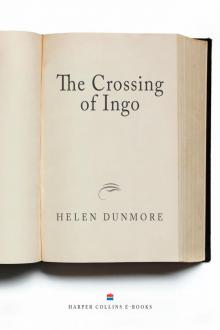 The Crossing of Ingo
The Crossing of Ingo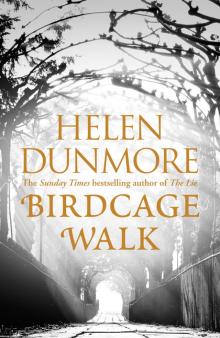 Birdcage Walk
Birdcage Walk Glad of These Times
Glad of These Times Counting the Stars
Counting the Stars With Your Crooked Heart
With Your Crooked Heart Burning Bright
Burning Bright House of Orphans
House of Orphans Mourning Ruby
Mourning Ruby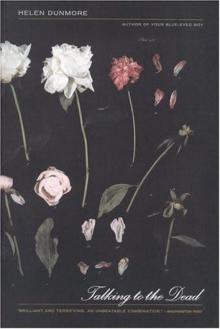 Talking to the Dead
Talking to the Dead Exposure
Exposure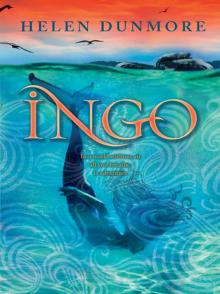 Ingo
Ingo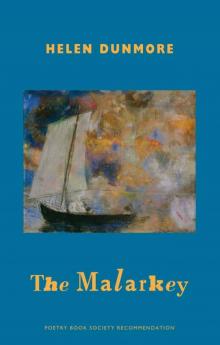 The Malarkey
The Malarkey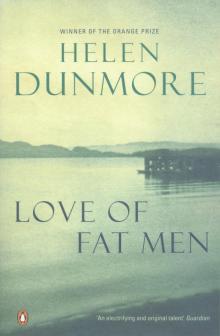 Love of Fat Men
Love of Fat Men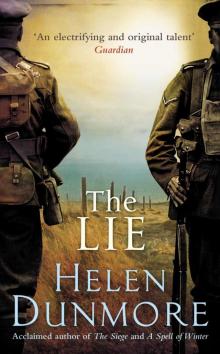 The Lie
The Lie The Siege
The Siege Inside the Wave
Inside the Wave Counting Backwards
Counting Backwards The Land Lubbers Lying Down Below (Penguin Specials)
The Land Lubbers Lying Down Below (Penguin Specials)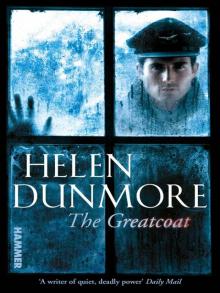 The Greatcoat
The Greatcoat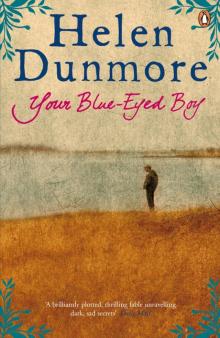 Your Blue Eyed Boy
Your Blue Eyed Boy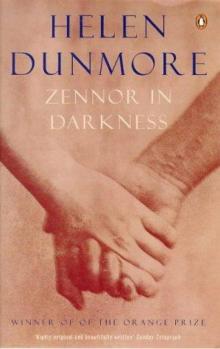 Zennor in Darkness
Zennor in Darkness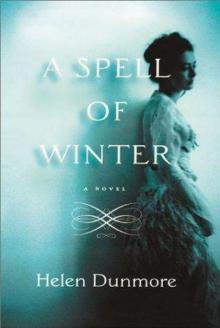 Spell of Winter
Spell of Winter Out of the Blue: Poems 1975-2001
Out of the Blue: Poems 1975-2001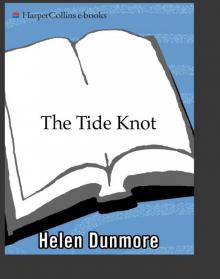 Tide Knot
Tide Knot The Betrayal
The Betrayal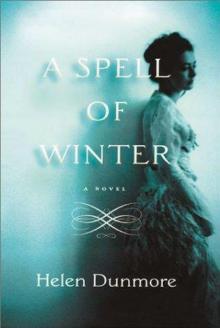 A Spell of Winter
A Spell of Winter Out of the Blue
Out of the Blue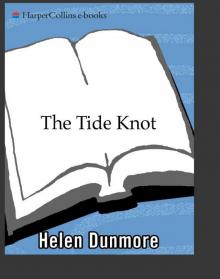 The Tide Knot
The Tide Knot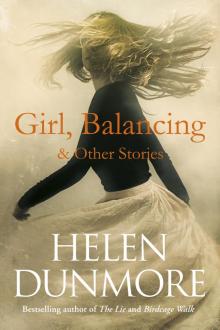 Girl, Balancing & Other Stories
Girl, Balancing & Other Stories Betrayal
Betrayal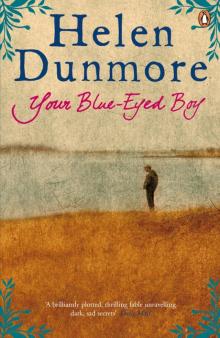 Your Blue-Eyed Boy
Your Blue-Eyed Boy